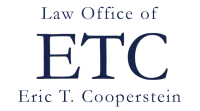In 1944, the Hennepin County Bar Association published its “Minimum Fee Schedule,” setting forth the permissible rates for various types of legal services. Although office consultations could be charged at the very reasonable rate of $10.00 per hour, minimum fees attached to lawyers’ charges, such as a minimum of $250 for appearing before the Minnesota Supreme Court, $100 minimum for preparing a bankruptcy petition and schedules, and 15% of the first $500 in a collection action. Estate planning, family law, and criminal matters are conspicuously absent from the schedule.
No “competent and conscientious lawyer” could go below the minimum fees without “incurring the temptation to slight his [sic] work . . . thus injuring his [sic] reputation” and “being unfair to his brother [sic] lawyers who are endeavoring to maintain proper standards of professional competency and diligence.”
Much about lawyers’ billing practices have changed in the last 75 years. Mostly gone are the days when a lawyer would send out an invoice listing fifteen or twenty tasks that had been accomplished in the past month, single-spaced with no paragraph breaks, followed by an apparently arbitrary dollar figure at the end. “Block billing,” as it is sometimes called, has been banned by insurers and corporate clients, even when all the tasks in question were completed on a single day. More common is that lawyers are expected to break out tasks and time separately or at least indicate within a paragraph of billing how much time has been devoted to each task.
And yet, despite the declaration in 1975 that fee schedules violated anti-trust laws,[1] few lawyers advertise their fees or attempt to compete with each other on price. Anecdotal evidence suggests that clients seeking to file a Chapter 7 bankruptcy or defend a DUI may price-shop by calling multiple lawyers, but one is hard-pressed to find an attorney’s website that states the lawyers’ hourly rates.
Flat fees. A 1994 Hennepin Lawyer article, titled “Is Hourly Billing Proper?” quoted a recent New York Times piece that declared “The billable hour as we know it is dead in the practice of law.”[2] Flat fees, contingent fees, and other alternatives would soon displace the odious hourly fee. Apparently, the future is not here quite yet. The Clio Legal Trends report for 2017,[3] which aggregated data on the tens of thousands of attorneys using Clio’s on-line practice-management software, showed that roughly 18% of lawyers used flat fees to bill clients, an amount that had not changed materially over the past five years. Flat fees tend to be used in the same areas of practice that have relied on flat fees for several decades: criminal law, estate planning, immigration, and bankruptcy work.
The problem here, if there is one, cannot be laid solely at the feet of lawyers. When pundits talk about how great flat fees are, they tend to overlook several factors. Hourly rates are a standard way of charging for time across our economy, from non-exempt hourly workers, to trades, to professional services. A large body of federal and state case law interpreting statutory attorney-fee provisions measures a lawyer’s work by the hour, with perhaps a lodestar applied to the hourly rate. Insurance companies have rigid rules for paying attorneys to defend cases, all based on hourly rates. The value of discharged attorney’s work in a quantum meruit claim on an attorney lien may be measured on an hourly basis.
At the same time, some lawyers are becoming more creative in designing fee structures to meet their client’s needs. These include blended hourly rates, fee collars, success fees, minimum fees, and fee caps. Contrary to popular belief, it is medium and large-sized firms, rather than solos and smalls, that have shown some of the greatest creativity in fee arrangements.
Costs. Photocopy and phone charges seem to have mostly disappeared from lawyers’ invoices. Charges for photocopies may be subject to sales and use taxes; few firms seem to want to go through the administrative burden of charging and reporting sales taxes for a few photocopies. The days of charging $1.00 / page for faxes printed on special thermal paper are, thankfully, long behind us.
Instead, one concerning trend is that some lawyers impose an “administrative fee,” typically between $100 and $250, to cover some of the photocopy, legal research, and other expenses they may incur but cannot otherwise recapture from clients. These administrative fees are fraught with ethical pitfalls. First, if the fee is intended as a flat fee that will not be placed in trust, then it probably must comply with Rule 1.5(b), MRPC, which means there must be a specific set of disclosures in the representation agreement. The Office of Lawyers Professional Responsibility strictly construes Rule 1.5(b), causing angst to many well-meaning lawyers. Second, if the representation ends prematurely, the unused balance will have to be refunded. It is not clear whether lawyers charging these administrative fees have contemplated how such a refund would be determined. Even if not clearly a violation of an ethics rule, I have seen questions about administrative fees prolong ethics investigations. The better practice is clearly to just incorporate any administrative costs into the lawyer’s hourly rate or flat fee for the representation, just like you do for the lights, the rent, Keurig cups, etc.
My prediction for 2044: attorneys will charge for their time pretty much the way they do right now.
(This article was originally published in the May 2019 issue of Hennepin Lawyer).
[1] See Goldfarb v. Virginia State Bar, 95 S.Ct. 2004 (1975).
[2] R. Curtin, “Is Hourly Billing Proper?” The Hennepin Lawyer 28 (May/June 1994).
[3] Available at https://www.clio.com/resources/legal-trends/2017-report/ (last visited Apr. 1, 2019).


 A family member or close friend calls you one day with a “quick” question. Seems she has a dispute with a neighbor or she just got denied a promotion or she needs to tell the renter of her duplex to stop smoking in his unit. She knows you are really busy but was wondering if you would mind looking into it or just writing a letter or making a phone call for her. She hates to bother you but she does not know any other attorneys and really needs some help with this problem.
A family member or close friend calls you one day with a “quick” question. Seems she has a dispute with a neighbor or she just got denied a promotion or she needs to tell the renter of her duplex to stop smoking in his unit. She knows you are really busy but was wondering if you would mind looking into it or just writing a letter or making a phone call for her. She hates to bother you but she does not know any other attorneys and really needs some help with this problem.
